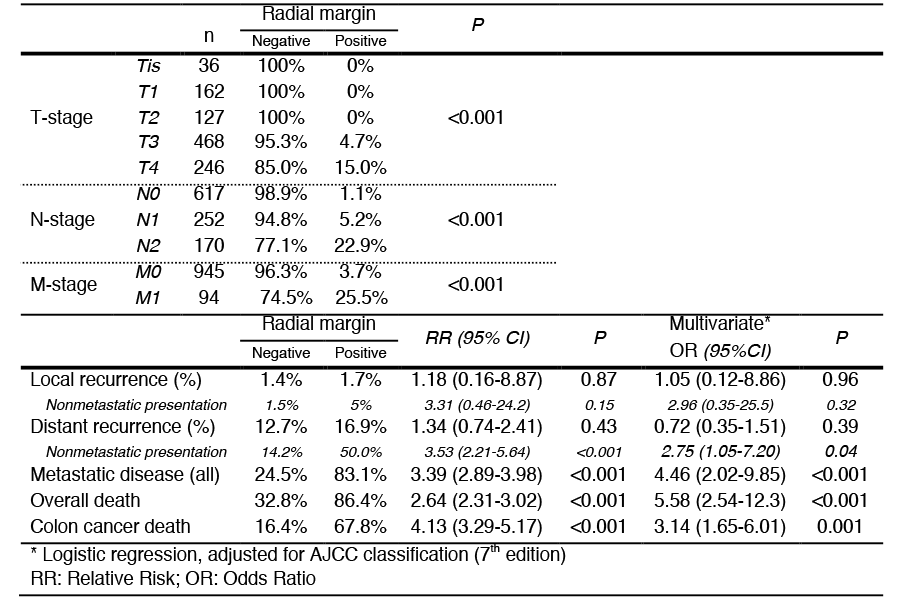Back to 2014 Annual Meeting Abstracts
Radial Margin Positivity as a Poor Prognostic Factor for Colon Cancer
*Ramzi Amri, Liliana G Bordeianou, *Patricia Sylla, David L. Berger
Massachusetts General Hospital, Harvard Medical School, Boston, MA
Objective: Radial margin positivity (RMP), defined in colon cancer as primary disease involvement at the cut edge of the mesentery or the non-serosalized side of the ascending or descending colon mesentery, has unclear implications on the prognosis of colon cancer. This study explores the prognostic value of RMP in colon cancer.
Design: Retrospective review of a prospectively maintained, IRB-approved data repository.
Setting: Tertiary care center.
Patients: All colon cancer patients treated surgically at our center from 2004 through 2011 were included.
Main outcome measures: Perioperative and long-term outcomes for all patients were reviewed, assessing for RMP-associated differences
Results: Of 1039 cases with relevant data on surgical margins, 59 (5.6%) had an involved radial margin. All of these cases were AJCC stage II or higher, and were generally associated with higher T, N and M-stage disease (all P<0.001), and higher rates of extramural vascular invasion (78% vs. 28.1%; P<0.001) and high-grade disease (43.1% vs. 18.3%; P<0.001).
In patients without metastatic presentation, long-term metastatic disease was considerably higher in patients with RMP (50% vs. 14.2%; P<0.001), especially peritoneal (20% vs. 2.8%; P<0.001) and liver (30% vs. 7.3%; P<0.001) metastasis. Overall, the stage-adjusted odds ratio for death was OR=5.58 (P<0.001), and OR=4.46 (P<0.001) for metastatic disease.
Conclusion: An involved radial margin has strong associations with a constellation of negative histopathological tumor characteristics; even after adjustment for stage, it predicts recurrence, and is strongly associated with death and shorter survival. Albeit occurring infrequently, RMP is an important predictor of mortality and recurrence in colon cancer.

Back to 2014 Annual Meeting Abstracts

